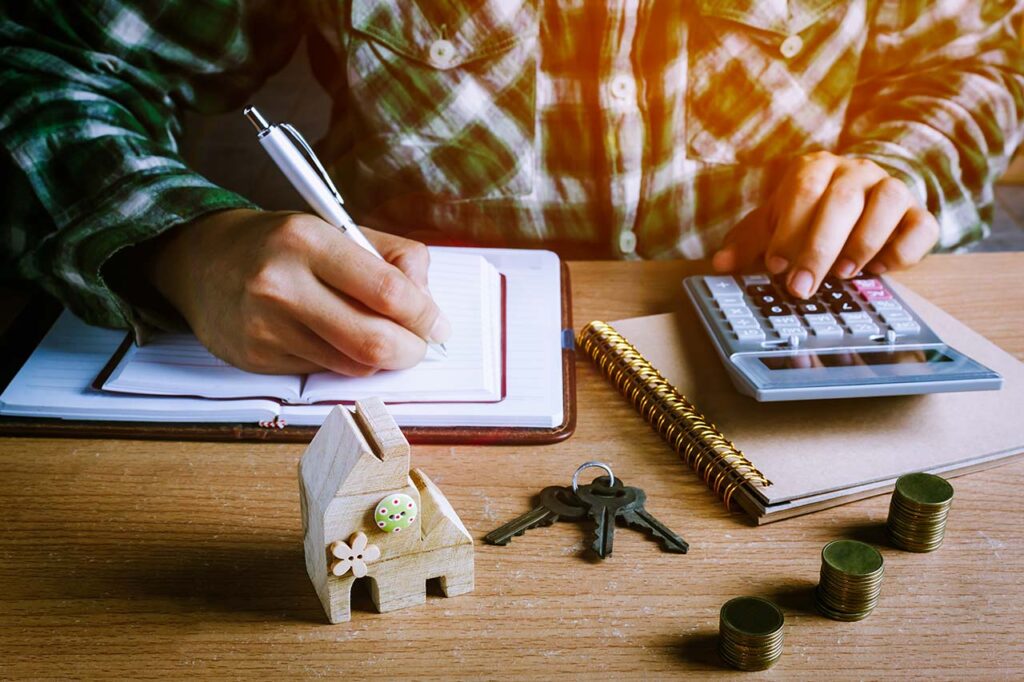
At Our Custom Home, we believe that every dream deserves the opportunity to become a reality. Whether you’re embarking on the journey to build your dream home from the ground up or seeking to purchase your ideal home, our full-service lending and financing options are designed to turn your aspirations into bricks and mortar.
We understand that financing a custom build or purchasing your dream home is a significant financial commitment. That’s why we offer a range of financing solutions tailored to your specific needs and circumstances. Our team of experts will work closely with you to explore the best options available, ensuring that your dream home is within reach.

If you’re building a custom home, Our Custom Home can connect you with the necessary funding to bring your vision to life. From construction loans to mortgage financing, we have the expertise and resources to secure the financial backing needed to transform architectural plans into your dream home.

For those seeking to purchase their ideal home from the market, our financing options extend to traditional mortgage solutions, ensuring that you have access to competitive rates and favorable terms. We streamline the lending process, making it easier for you to secure the keys to your new home.

Our Custom Home offers a wide range of loan types, including fixed-rate mortgages, adjustable-rate mortgages, FHA loans, VA loans, jumbo loans, and more. Each loan type is carefully selected to match your unique requirements, allowing you to choose the one that best fits your financial situation and goals.

To begin building a custom home, you should start by defining your budget, selecting a location, and securing financing if needed. Next, hire an architect or a custom home builder to design your dream home. Obtain necessary permits, select materials and finishes, and oversee construction.
The cost of building a custom home can vary widely depending on location, size, design, and materials. On average, you can expect to pay between $100 to $400 or more per square foot. It’s essential to work closely with your builder to create a budget that aligns with your vision.
The timeline for building a custom home typically ranges from 10 to 16 months, but it can be shorter or longer depending on factors like complexity, weather conditions, and local permitting processes.
While you can work with a custom home builder who provides design services, many people choose to hire an architect for their expertise in creating unique and functional home designs. Architects can help you turn your vision into detailed plans that meet local building codes.
The steps in building a custom home generally include:
To find the right custom home builder, start by researching local builders, checking their portfolios and references, and reading reviews. It’s crucial to meet with potential builders to discuss your project, ask questions, and gauge their compatibility with your vision and budget.
Making changes to your custom home design during construction can be costly and may lead to delays. It’s best to finalize your design before construction begins. However, if changes are necessary, communicate them promptly with your builder and be prepared for potential adjustments in cost and timeline.
To make your custom home energy-efficient and eco-friendly, consider incorporating energy-efficient appliances, insulation, windows, and sustainable building materials. You can also explore renewable energy sources like solar panels and geothermal heating/cooling systems.
Your building contract should outline the scope of work, timeline, payment schedule, warranties, and dispute resolution procedures. It’s essential to have a clear and legally binding contract that protects both you and your builder.
To stay within your budget, carefully plan and prioritize your needs and wants. Be realistic about your financial limits and communicate them with your builder. Regularly review the budget during construction to ensure it stays on track. Having a contingency fund for unexpected expenses is also advisable.